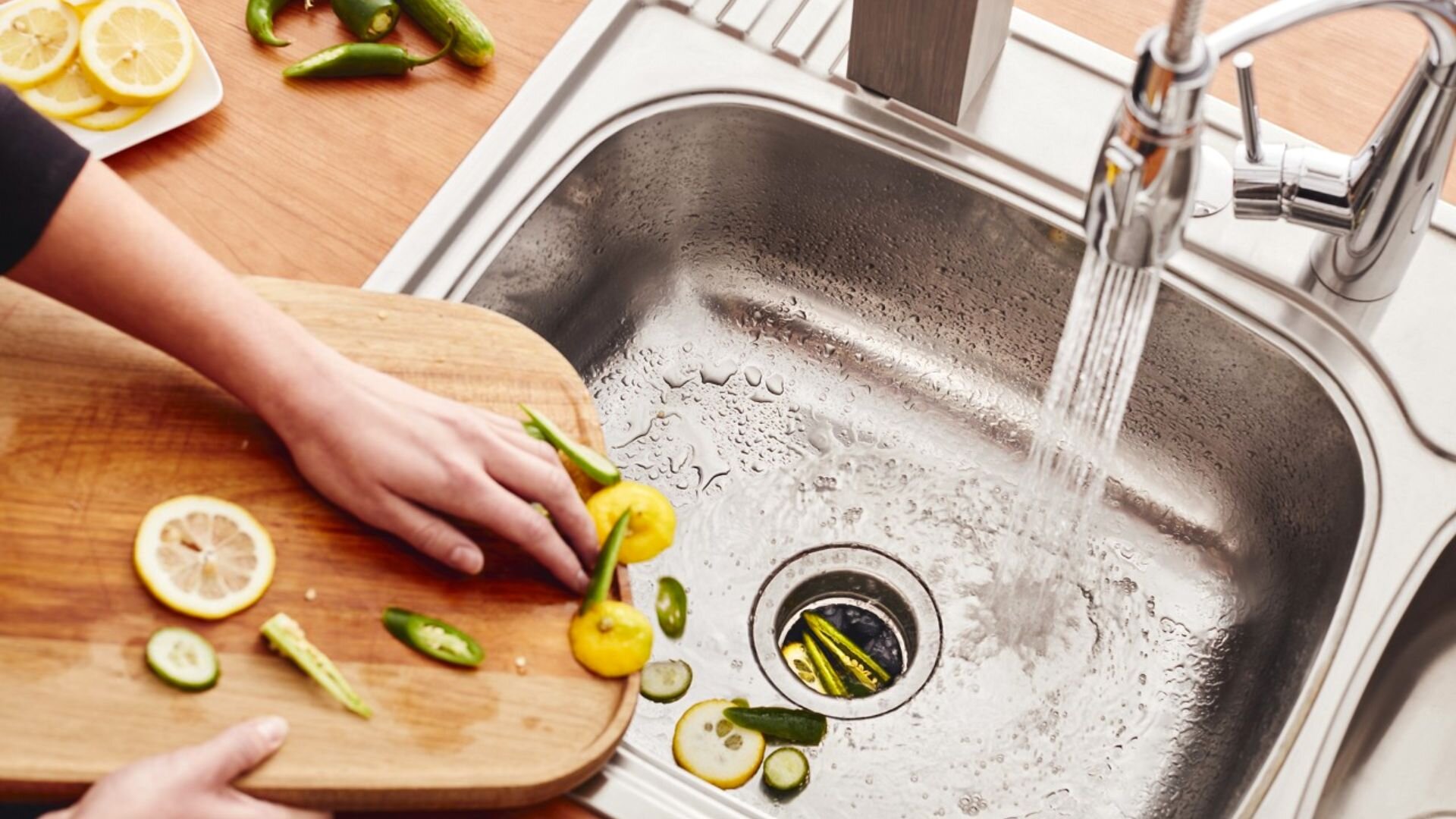Handy Methods for Fixing a Dripping Garbage Disposal
Handy Methods for Fixing a Dripping Garbage Disposal
Blog Article
The article down below relating to Garbage Disposal Leaking From Bottom is totally captivating. Don't miss it.

Garbage disposals are necessary cooking area appliances that help in getting rid of food waste effectively. Nevertheless, a dripping garbage disposal can be a frustrating and untidy problem to take care of. Fortunately, numerous leaks can be dealt with conveniently with a couple of easy actions. In this short article, we will discuss exactly how to take care of a leaking garbage disposal effectively.
Intro
Garbage disposals are installed under cooking area sinks and are developed to shred food waste into smaller sized items, enabling it to pass through the pipes system easily. While these gadgets are generally trusted, leaks can happen over time because of damage, loose connections, or damages to the device.
Step-by-Step Guide to Repairing a Dripping Waste Disposal Unit
Switch off the Power
Before attempting any type of repair work, make sure that the power to the garbage disposal system is turned off to avoid the danger of electrical shock.
Situate the Leak
Determine the exact area of the leak and establish the cause
Tighten up Links
Utilize a wrench to tighten up any kind of loosened links between the disposal system and the plumbing system.
Replace Seals or Gaskets
If the leakage results from used seals or gaskets, eliminate the old components and change them with brand-new ones.
Patching Fractures or Openings
For fractures or openings in the disposal unit, usage epoxy or a suitable patching material to secure the damaged area.
Identifying the Resource of the Leakage
Before attempting to fix a dripping waste disposal unit, it is important to identify the source of the leak. This can usually be done with visual evaluation or by carrying out easy examinations.
Visual Inspection
Inspect the garbage disposal device very carefully for any indications of water leakage. Pay very close attention to locations around seals, gaskets, and connection points.
Testing for Leaks
One way to test for leakages is by running water through the disposal device and checking for any kind of visible signs of leakage.
Common Reasons For Leakages in Rubbish Disposals
Worn Seals and Gaskets
Seals and gaskets play a crucial role in stopping water from dripping out of the waste disposal unit. In time, these components can degrade, causing leakages around the disposal system.
Loose Links
The connections in between the waste disposal unit and the pipes system can come to be loosened with time, creating water to leak out during procedure.
Cracks or Holes in the Disposal Device
Physical damage to the garbage disposal, such as cracks or holes in the real estate, can likewise result in leakages.
Devices and Products Needed for Taking Care Of a Leaking Garbage Disposal
Before beginning the repair service process, gather the needed tools and products, including a screwdriver, adjustable wrench, plumbing professional's putty, substitute seals or gaskets, and epoxy or patching material for repairing splits or openings.
Checking the Waste Disposal Unit After Repair
When the repair is complete, test the waste disposal unit by running water via it to guarantee that the leak has actually been resolved.
Preventive Maintenance Tips to Prevent Future Leaks
To prevent future leaks, it is vital to carry out routine upkeep on your waste disposal unit. This includes maintaining it tidy, avoiding placing non-food products or hard items down the disposal, and periodically looking for leaks or other concerns.
Final thought
Finally, repairing a leaking garbage disposal is a fairly uncomplicated process that can be completed with standard tools and products. By following the steps laid out in this short article and exercising preventive upkeep, you can maintain your waste disposal unit in good working problem and avoid expensive fixings in the future.
HERE’S HOW TO FIX YOUR GARBAGE DISPOSAL
WHAT TO DO IF SOMETHING IS STUCK IN YOUR GARBAGE DISPOSAL
If the impeller won’t turn, there’s probably something stuck in the disposal. It could be a steak bone or peach pit, although plumbers report pulling all sorts of inappropriate objects out of disposals, such as bottle caps or aluminum foil. Make sure power to the disposal is off, and look inside to see if you can see the source of the jam.
Never stick your fingers in a disposal. Pull out anything you see with tongs or pliers.
If the disposal still won’t work, it may be time to call a plumber or consider buying a new disposal. GEM Plumbing & Heating is here for all of your garbage disposal needs.
WHAT TO DO IF YOUR GARBAGE DISPOSAL DRAIN IS CLOGGED
Take everything out from underneath your sink and put a bucket or other container under your disposal to catch any water that drains out. Disconnect your disposal from the power supply. If it’s plugged into a wall outlet, unplug it. If it’s hardwired into an electrical box, go to the electrical panel and turn off the breaker for the disposal. Pour ¼ cup of baking soda into the drain, followed by ½ cup of white vinegar. Give the solution a few minutes to fizz and do its work. Look into the disposal with a flashlight to see if you can see an object that might be causing the clog. If you see it, remove it using tongs or pliers. MORE TIPS ON DEALING WITH A CLOGGED GARBAGE DISPOSAL
Never use drain cleaner in a garbage disposal. It can damage the plastic parts inside the disposal. You can also be splashed with the caustic liquid while working to clear the clog. Beware! Never stick your fingers into a garbage disposal. Trust us — not a good idea. In many instances, your dishwasher drains through your garbage disposal. This allows the disposal to grind any large food particles that may be drained out of your dishwasher. There are some jurisdictions, however, where the plumbing code prohibits such a connection. WHAT TO DO WHEN YOUR DISHWASHER DRAINS THROUGH THE DISPOSAL
Run some water in the sink so your plunger has at least a ½-inch of water to create a seal and plunge vigorously up and down several times. You may need to repeat this several times. Run hot water down the drain to clear any residue that remains.

Hopefully you liked our part about Why Is . Thank you for taking time to read our piece. Sharing is good. Helping others is fun. Thanks for your time. Kindly stop by our blog back soon.
Visit Page Report this page